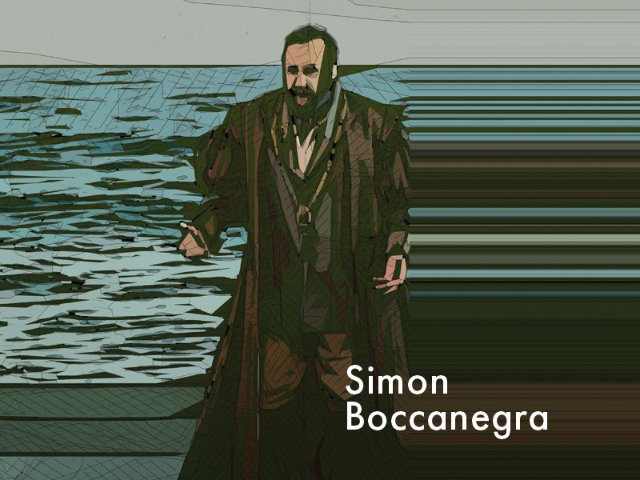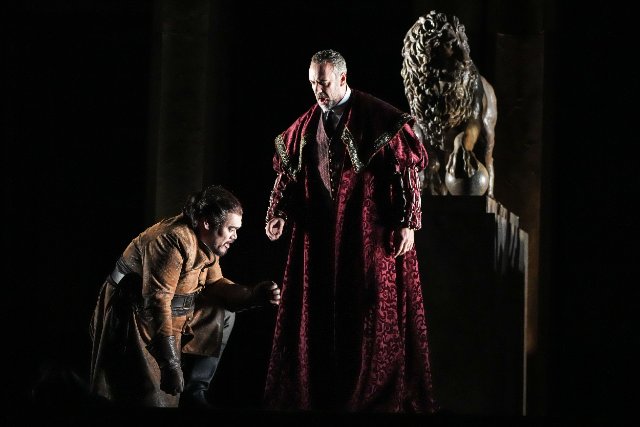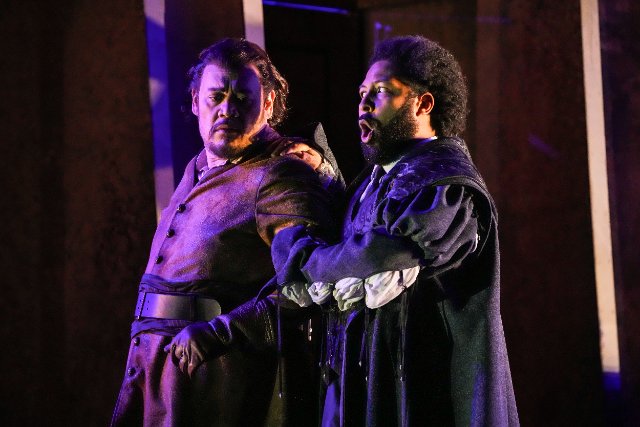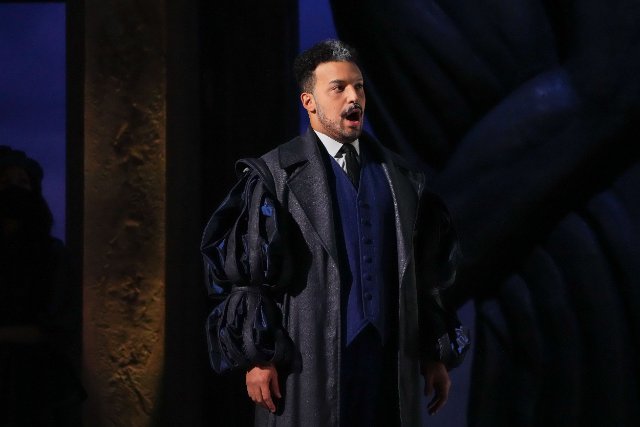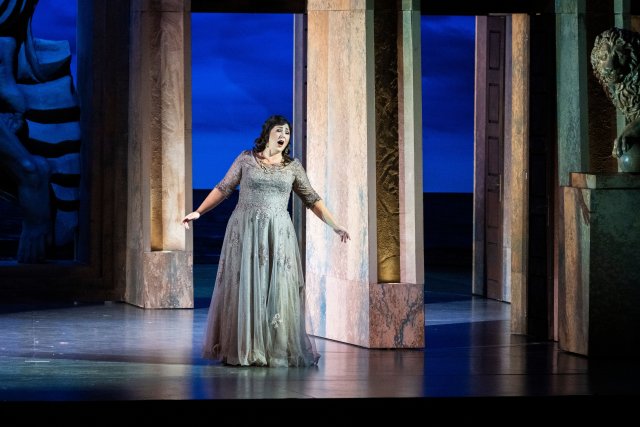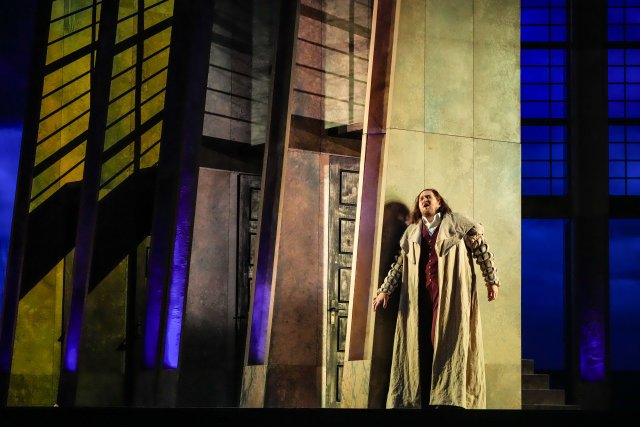Verdi's Simon Boccanegra at Opera Philadelphia
Stellar Cast, Moving Production
By: Susan Hall - Oct 02, 2023
Opera Philadelphia knows how to produce opera. They recognize its multiple forms and multiple historic periods. No company in this country has spearheaded the development of new opera with such an effective program. Yet Philadelphia also continues to produce the tried and true with great style.
Simon Boccanegra may not be as well-worn as La Boheme. Recently the company produced La Boheme backwards and I had tears in my eyes for the first time at the end/beginning. Rossini’s Otello featured the brilliant Lawrence Brownlee, Artistic Advisor at the company and on its Board, the first Black person to be placed in a prominent position in an opera company. His songs about being Black were among the first original compositions commissioned on the plight of Black men in America.
Boccanegra was booed at its premiere and the composer Giuseppe Verdi wrote at the time: “Boccanegra requires a public that is prepared to listen. We poor gypsies, charlatans, call us what you will, are doomed to sell our toil, our thoughts, our ecstasies for gold! Oh, what a wretched thing the theatre is.” Sounds not unlike current feelings about opera, classical music and the world.
The work is an odd one for Verdi. It is Corrado Rovaris’ favorite. (He is Music Director of the company). Rovaris's rendering of the orchestral score and management of the coordination of singing and recitatives was detailed and moving. It is not an easy score. More than most Verdi, recitatives develop the plot. Characters come to the fore through their words, perhaps even more than their lyrics and the beautiful music that supports them.
The cast for this production was first-rate. Quinn Kelsey has become one of the most important baritones on stage today. Noticeably, he does not blast at the beginning of a phrase, but often starts quietly, shaping what is to come and leaving plenty of room for the full-throated moments that heighten the score.
Surprisingly, Dr. Lily Kass, who lectured on the work before the performance began, reported that Christian Van Horn handled the role of Fiesco with gravity. Christian Van Horn? One of the most electric, funny, vibrant singers on stage today. A member of the opera staff thought Van Horn might camp it up in the final performance. He didn’t. He was grave and somber and elegant in the role.
Jennifer Rowley caught our attention at Roxane in Cyrano de Bergerac at the Met Opera a little over five years ago. Philadelphia's scheduled singer Ana Maria Martinez was out ill. Rowley’s voice is larger and in many ways more suited to the role of Amelia. A tough job, because Amelia is one of those women Verdi loves–kind of pretty, nice, dumbed down, and always willing to rush in to help. Not very interesting compared to the rich characters poet Arrigo Boito was brought in to develop a quarter of a century after the premiere production. Yet Rowley shines here. While her top is sometimes a bit shaky, the richness of tones, which also float, are suited to Amelia. Like her father, Simon Boccanegra, she loves the ocean in Genoa, and sings of it appreciatively. The composer too loved Genoa. Their father and daughter love duet rials Wagner’s at the end of Act II of Die Walkyrie.
Benjamin Taylor got a chance to step forward and show his stuff as the bad guy Paolo. Paolo is one of Verdi’s most complex villains. When he first read Boito’s verses about Paolo, Verdi wrote: “What a pity. Such powerful verses in the mouth of a scoundrel. But I will see to it that Paolo is no ordinary scoundrel!” He isn't. Taylor brings humanity to this character, as he sings with unusual anguish and suffering.
The set is glorious. Moving walls separate inside and outside worlds and often let us see both at once. The sea and the skies above it dominate. Lighting moves from nautical blue to raging red and jealous yellow seamlessly. The chorus presents the townspeople and warriors with a sense that being Italian is important, one of Verdi’s goals.
Sitting in the Academy of Music where my own very American family sat a hundred and fifty years ago for the initial productions in this opera house, I could only wish that Opera Philadelphia lives for another hundred fifty years, at least.

